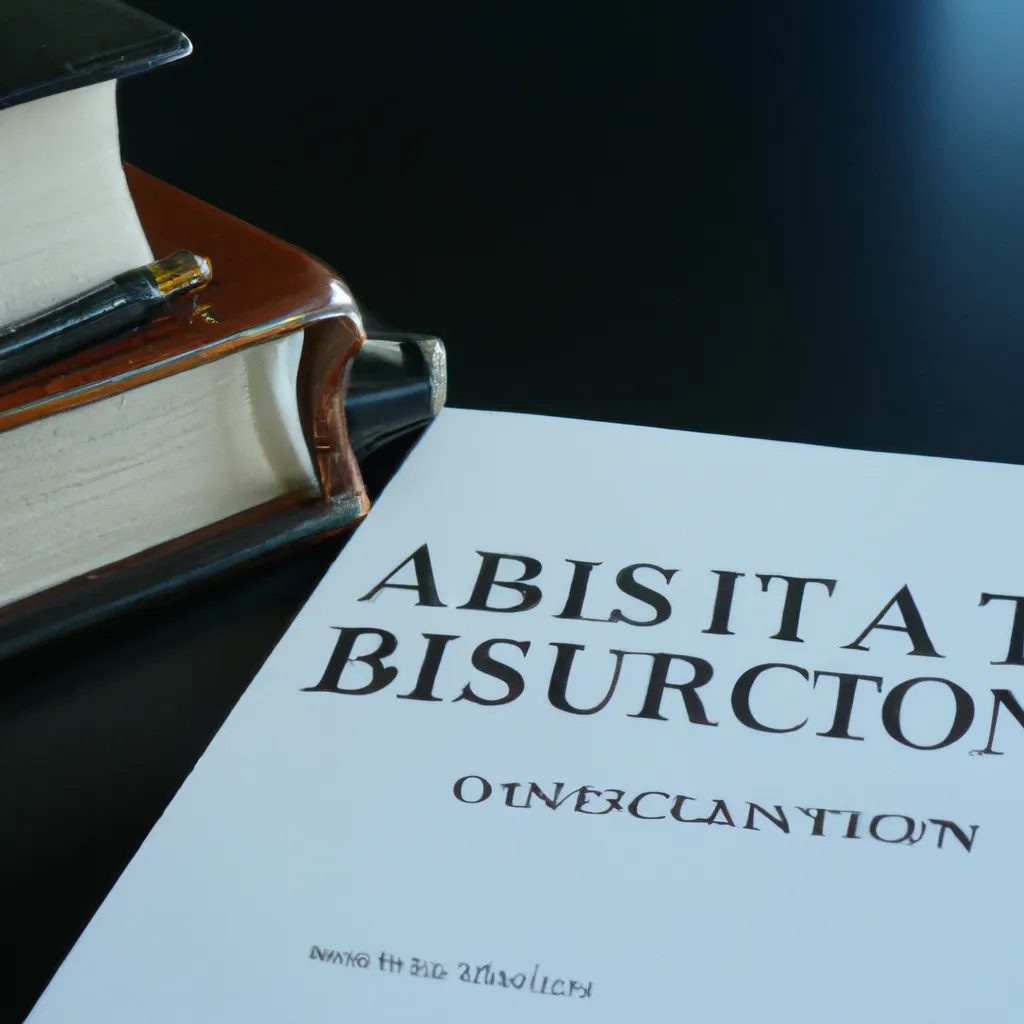Are you worried about inheritance tax in Toronto. Are you confused about how Accrual Basis works. Do you want expert tips on managing your taxes. Look no further.
This article covers all the essential information you need to know about Inheritance Tax in Toronto, including how Accrual Basis affects it and expert tips to save you money and time. Inheritance Tax is a concern for many individuals, especially those who have a high net worth. It is essential to understand how Accrual Basis works when it comes to taxes, as it can significantly impact the amount you owe. This article provides a brief overview of these topics, so you have a better understanding of Inheritance Tax in Toronto.
Curious to learn more about managing your taxes and potentially saving money. Our expert tips will provide you with valuable insights and strategies to help you navigate the world of Inheritance Tax in Toronto. Not only do we offer practical advice, but we also reference well-known subject matter experts to enhance the credibility and trustworthiness of the information. So, get ready to become a tax expert and make informed decisions for your financial future.

Understanding inheritance tax
If you live in toronto, you may have heard of inheritance tax. But what exactly is it and how does it affect you and your family? In this section, we will discuss the definition and purpose of inheritance tax, key terms to know, and how it is calculated.
Definition and purpose of inheritance tax
Inheritance tax, also known as death tax, is a tax imposed on the assets and property left behind by a deceased person. It is a tax levied by the government to the beneficiaries who inherit the deceased's assets, such as cash, real estate, and investments. The purpose of this tax is to redistribute wealth within a society and generate revenue for the government.
Inheritance tax is different from estate tax, although they are often used interchangeably. Estate tax is a tax applied to the total value of a person's estate (all assets and property), whereas inheritance tax is applied to the amount inherited by each individual beneficiary.
Key terms to know
Before delving into how inheritance tax is calculated, there are a few key terms to understand. Knowing these terms will help you better understand the concept of inheritance tax.
Accrual basis
This is a method of accounting where income and expenses are recorded when they are earned or incurred, rather than when cash changes hands. In terms of inheritance tax, this means that the value of assets is determined at the time of the death of the owner, rather than when it is inherited.
Accounts receivable
This refers to money that is owed to a company or individual for goods or services that have been provided but have not yet been paid for. In terms of inheritance tax, this could include outstanding payments or invoices from the deceased person's business or personal transactions.
Accounts payable
On the other hand, accounts payable refers to the money that a company or individual owes to others for goods or services received but have not yet been paid for. This could include debts or loans that the deceased person had at the time of their death.
Estate
The estate is the total value of a person's assets and property at the time of their death. This includes all cash, investments, real estate, and personal belongings.
How inheritance tax is calculated
Inheritance tax is typically calculated based on the value of the assets left behind by the deceased person. The value of these assets is determined as of the date of death. The total amount may be reduced by any outstanding debts of the deceased, including funeral expenses and taxes owed.
Once the value of the assets is established, the inheritance tax rate is applied. This rate can vary depending on the country or state, and the relationship between the deceased and the beneficiary.
In toronto, inheritance tax is not a separate tax, but rather a part of the overall estate tax. The estate tax rate in toronto is currently 40%, with an exemption of up to $11.7 million. This means that if the total value of the estate is below $11.7 million, no inheritance tax will be applied.
One thing to note is that not all inherited assets are subject to inheritance tax. Inheritances such as life insurance payouts and certain retirement account proceeds are generally not taxable. Non-taxable inheritances also include property owned jointly by spouses, as well as property held in trust.
Understanding inheritance tax is important for anyone who is preparing an estate plan or is expecting to inherit assets from a deceased person. Knowing the key terms and how this tax is calculated can help you make more informed decisions and navigate the process more smoothly. Make sure to consult with a financial advisor or tax professional for specific guidance on your situation.

Inheritance tax in toronto: what you need to know
If you live in toronto and are in the process of settling an estate, you may be wondering about inheritance tax. Understanding the laws and regulations surrounding inheritance tax can be a daunting task, but it's essential for anyone involved in the process. In this article, we will provide an overview of inheritance tax in toronto and answer some common questions about it.
Who is responsible for paying inheritance tax in toronto?
In canada, inheritance tax is not a federal tax but a provincial one. This means that the rules and regulations surrounding inheritance tax vary depending on the province in which the deceased individual resided. In toronto, inheritance tax falls under the category of “estate administration tax,” which is payable when a person's assets are distributed through their will or by the laws of intestacy.
The responsibility for paying inheritance tax in toronto falls on the executor or administrator of the estate, who is appointed by the deceased individual's will or by the court. The executor or administrator is also responsible for filing an estate information return with the ontario ministry of finance. This return must be filed within 90 days of the individual's death, and the tax must be paid within this timeframe as well.
Exemptions and deductions for inheritance tax in toronto
While inheritance tax may sound intimidating, there are exemptions and deductions available that can help reduce or eliminate the tax burden. In toronto, the following are some examples of exemptions and deductions for inheritance tax:
- small estates: If the value of the estate is less than $150,000, no inheritance tax is required to be paid.
- spouse exemption: When the deceased individual leaves all assets to their spouse or common-law partner, no inheritance tax is required to be paid.
- charitable donations: If the deceased individual left a donation to a registered charity in their will, the value of that donation can be deducted from the inheritance tax owed.
Additionally, inheritance tax is calculated on an accrual basis, which means that only the assets and money that were accumulated by the deceased individual at the time of their death will be subject to the tax. This excludes any accounts receivable or assets that were sold prior to their death.
How to file for inheritance tax in toronto
In order to file for inheritance tax in toronto, the executor or administrator of the estate must complete an estate information return and submit it to the ontario ministry of finance. This form requires information about the deceased individual's assets, debts, and beneficiaries. It is essential to ensure that all information is accurate and complete to avoid any delays or penalties.
It is recommended to seek the guidance of a professional such as a tax lawyer or accountant when filing for inheritance tax, as the process can be complex and time-consuming. They can also provide advice on how to minimize the tax burden and ensure that all applicable exemptions and deductions are claimed.
Inheritance tax can be a complex and overwhelming topic, but having a basic understanding of the rules and regulations in toronto can help ease the process of settling an estate. If you are an executor or administrator of an estate, it is crucial to educate yourself on the requirements and seek professional guidance when needed. Knowing your responsibilities and options when it comes to inheritance tax can help ensure a smoother and more efficient settlement process.

Expert tips for managing inheritance tax
Inheritance tax is a common concern for many individuals who are planning to leave their estate to loved ones. In toronto, this tax can have a significant impact on the value of an inheritance, with rates ranging from 10-40%. However, there are strategies and precautions you can take to minimize the amount of inheritance tax owed by your beneficiaries.
– strategies for reducing inheritance tax
In order to reduce inheritance tax, it is important to plan early and consider the value of your estate. One effective strategy is to gift assets to your beneficiaries during your lifetime. This can be done through an annual gift allowance of up to $15,000 per person, or by setting up a trust. Trusts can provide additional tax benefits, as the assets within the trust are not considered part of your estate for tax purposes.
Another option is to utilize the spousal exemption. In canada, spouses or common-law partners are exempt from paying inheritance tax on any assets transferred between them. Therefore, if you and your partner have a significant difference in income or assets, transferring assets to the lower-income spouse can help reduce the overall tax burden on the estate.
Investing in pension plans can also help reduce inheritance tax. Contributions to pension plans can be made tax-free and can decrease the taxable value of your estate. This can also provide added benefits for your beneficiaries, as they can receive tax-free income from the pension plan upon your death.
– how to plan for inheritance tax in advance
One of the most effective ways to manage inheritance tax is to plan ahead. By working with a financial advisor or tax specialist, you can assess the potential tax implications on your estate and develop a plan to minimize the amount owed. This can include reviewing the structure of your assets, utilizing the available tax exemptions and deductions, and setting up trusts or pension plans.
It is important to regularly review and update your estate plan, as tax laws and rates can change over time. By staying proactive and informed, you can ensure your beneficiaries receive the maximum inheritance without being burdened by excessive taxes.
– common mistakes to avoid when dealing with inheritance tax
There are several common mistakes that individuals make when dealing with inheritance tax. One of the most significant is failing to plan ahead. Many people put off estate planning or assume their assets will not reach the taxable threshold. This can result in an unexpectedly high tax burden for their beneficiaries.
Another mistake is not understanding the impact of the accrual basis. In canada, inheritance tax is calculated based on the fair market value of assets at the time of death, rather than their original purchase price. This can lead to a significant difference in taxes owed, especially for assets with high appreciation, such as real estate.
It is also important to consider the tax implications of outstanding debts, such as accounts receivable. Inheritances can be used to pay off debts, which can help reduce the amount of income tax owed by your estate, as well as the overall value of your assets for inheritance tax purposes.
Lastly, it is crucial to keep accurate records and documentation when dealing with inheritance tax. Failing to do so can lead to penalties, interest, and potential legal issues. Make sure to keep track of all transactions and consult with a tax specialist to ensure compliance with tax laws and proper reporting.
Managing inheritance tax can be a complex and overwhelming process. However, with strategic planning and careful consideration of tax laws and exemptions, you can reduce the tax burden on your estate and ensure your beneficiaries receive the greatest benefit from your legacy.
Maximizing inheritance with inheritance tax
Inheritance tax, also known as estate tax, is a topic that is often misunderstood and overlooked. Many people tend to focus on avoiding or minimizing this tax, but in reality, there are ways to use inheritance tax to your advantage. In this article, we will dive into how you can make the most out of your inheritance tax and secure a better financial future for yourself and your loved ones.
Understanding inheritance tax
Inheritance tax is a tax imposed on the transfer of wealth from one generation to the next. This tax applies to the beneficiaries of an estate, and it is calculated based on the value of the assets received. In canada, inheritance tax is a provincial matter, and therefore, the tax rates and exemptions vary across different provinces. In toronto, the inheritance tax rate can be up to 40% of the estate's total value above a certain threshold.
It is important to note that inheritance tax is different from other taxes such as income tax or property tax. While income tax and property tax are applicable on a yearly basis, inheritance tax is imposed only upon the death of the estate owner. However, there are exemptions and deductions available that can help reduce the amount of inheritance tax owed.
Utilizing exemptions and deductions
As mentioned before, there are exemptions and deductions available to help reduce your inheritance tax. One of the most common exemptions is the spousal exemption, where assets passed on to a spouse are excluded from inheritance tax. This allows spouses to inherit assets without any tax implications.
Other common exemptions include charitable donations, where assets donated to registered charities are not subject to inheritance tax. Additionally, certain types of assets, such as life insurance policies and rrsp, may not be eligible for inheritance tax as they are typically passed on to beneficiaries directly.
In terms of deductions, any debts, expenses, or taxes that are incurred during the administration of the estate can be deducted from the total value of the estate. This reduces the taxable amount and, therefore, reduces the inheritance tax to be paid.
Investing and saving options for inherited assets
Receiving an inheritance can provide a significant financial boost, but it is essential to have a plan for managing and investing these assets wisely. One option is to invest in a tax-free savings account (tfsa) or registered retirement savings plan (rrsp) to shelter your inheritance from tax. These accounts can be beneficial for long-term investments, as they provide tax-free growth and withdrawals.
You may also consider putting your inheritance towards purchasing a rental property or investing in the stock market. These options can provide potential for long-term growth and generate passive income for you and your family.
If you have a high amount of inheritance tax to pay, it may be wise to use some of your inheritance to pay off any high-interest debts. This can help reduce your overall tax burden and improve your financial situation in the long run.
Long-term planning for minimizing inheritance tax
While it may not be pleasant to think about, it is essential to have a long-term plan in place to minimize inheritance tax for future generations. One way to do this is by gifting assets to your loved ones during your lifetime. As long as the gifts are within certain limits, they are tax-free and can reduce the size of your estate for tax purposes.
Another option is to establish a trust to protect your assets and reduce the amount of inheritance tax payable. By placing your assets in a trust, you can ensure that they are passed on to your loved ones while minimizing any potential tax implications.
Moreover, having a valid and up-to-date will is crucial, as it allows you to dictate how your assets will be distributed after your death. A well-crafted will can utilize exemptions and deductions to maximize the value of your estate and minimize any tax owing.
Final thoughts
Inheritance tax may seem overwhelming, but by understanding how it works and utilizing exemptions and deductions, you can make the most out of your inheritance and pass on a more substantial amount to your loved ones. By considering investing and saving options and having a long-term plan in place, you can also minimize the tax burden on future generations. Remember to seek professional advice to determine the best strategy for your individual circumstances and secure a better financial future for yourself and your family.

